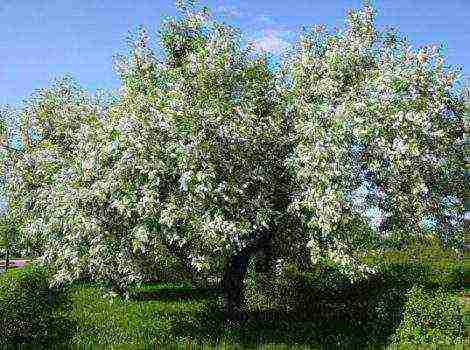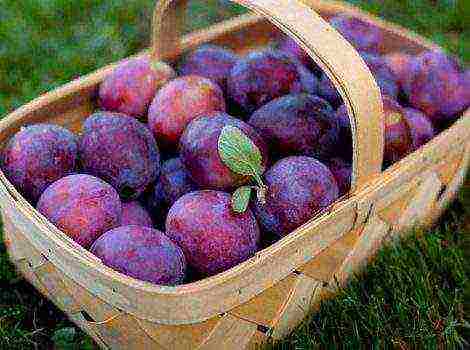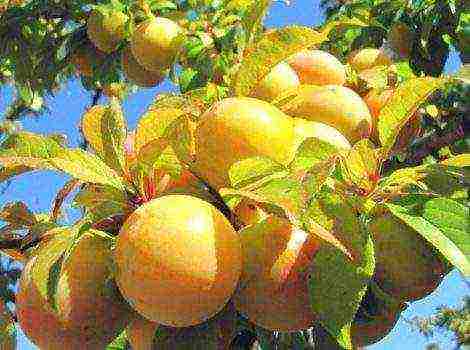Content [show]
How is peach useful for the human body?
Peach can rightfully be considered one of the healthiest and most delicious fruits. Juicy and sweet taste of fruits with an extraordinary aroma attract children and adults, and beneficial properties are appreciated by lovers of healthy food... Due to its rich composition and calorie content, peach is excellent for therapeutic diets. Peach fruits are able to retain their beneficial properties as much as possible after processing, therefore, useful culinary preparations are obtained from them.
Peach composition and calorie content
It is assumed that the birthplace of the fruit culture is China, it was on its territory that a genetically close wild species of peach was discovered. The plant came to the territory of Europe in the 1st century from Persia, where it received its first known name malum persicum, a simplified version of which is used today.

For a long time, the fruits of the plant were considered poisonous. It is known that some peoples made amulets and amulets from the "evil peach". Gradually, people began to use the fruits for food, and soon they began to guess about the beneficial properties. Today, peach fruits are fully understood, so we can analyze the nutritional value and chemical composition of the fruit.
Product composition (100 g):
- proteins 0.9 g;
- carbohydrates 9.5 g
- fats 0.3 g;
- water 88.9 g.
How many calories are in a peach, can you get better from them? The energy value 39 kcal.
The energy value of some varieties of peaches can reach up to 45 kcal. One fruit weighs on average85-100 g... Thus, the calorie content of one peach can be from 33 to 45 kcal, depending on the variety. For example, a fig peach (flat) contains about 34 kcal per 100 g of product.
Vitamin composition:
- ascorbic acid (C) 6.6 mg;
- tocopherol (E) 0.7 mg;
- pantothenic acid (B5) 0.15 mg;
- niacin (B3) 0.8 mg;
- folic acid (B9) 8 μg;
- thiamine (B1) 0.02 mg;
- riboflavin (B2) 0.03 mg;
- pyridoxine (B6) 0.03 mg;
- phylloquinone (K1) 2.6 μg.
The color of the peach fruit is given by the plant pigment β-Carotene (162 mcg), which is converted in the body into vitamin A.
Macronutrients:
- potassium 190 mg;
- phosphorus 20 mg;
- magnesium 9 mg;
- calcium 6 mg;
- fluorine 4 μg.
Trace elements:
- manganese (9 mg);
- zinc (0.17 mg);
- iron (0.3 mg);
- selenium (0.1 mcg).
Beneficial features
Peach is a low-calorie product, a source of macronutrients and vitamins that must be supplied to the human body every day. The need for nutrients is doubled in childhood and old age, with any disease and bearing a fetus. therefore When choosing a healthy diet, many nutritionists consider peaches as a dessert or as a snack between main dishes... Let's take a closer look at what benefits peaches bring to human health.
The cardiovascular system
The benefits of peach for the cardiovascular system are distinguished by the content of potassium, magnesium and calcium in fruits. Macronutrients in the complex regulate the rhythm of heart contractions and reduce the load on the heart, preventing the formation of edema... Minerals maintain acid-base balance, increase vascular tone and regulate blood pressure.
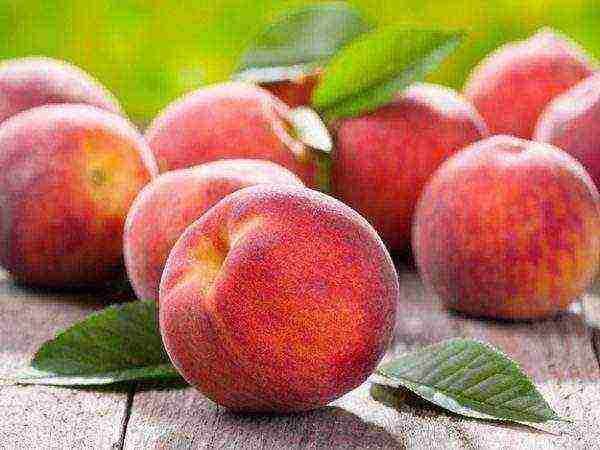
Peaches will be useful for:
- pathologies of the heart;
- hypertension;
- atherosclerosis;
- hyperkalemia.
Digestive system
Dietary fiber of peach stimulates intestinal motility, contributing to the stable movement of feces... Dietary fiber absorbs water and increases in volume, which causes a feeling of fullness. Plant fibers stimulate the growth of healthy microflora and the elimination of toxins from the body.
Peaches will be useful for prevention:
- constipation;
- dysbiosis;
- intestinal obstruction;
- the formation of fecal stones;
- colitis.
Another property of dietary fiber is the absorption of cholesterol and bile acids.... This reduces the build-up of cholesterol plaques and gallstones. Eating peaches causes a feeling of fullness, which, together with low calorie content, contributes to rapid weight loss.
Peaches for women and men
Peaches contain phytoestrogens that are useful for maintaining hormonal levels. These properties are especially significant during menopause in women.... Vitamins E are indispensable for internal skin support. This is an active protection of the epidermis from the negative effects of environmental factors and stimulation of cell renewal.
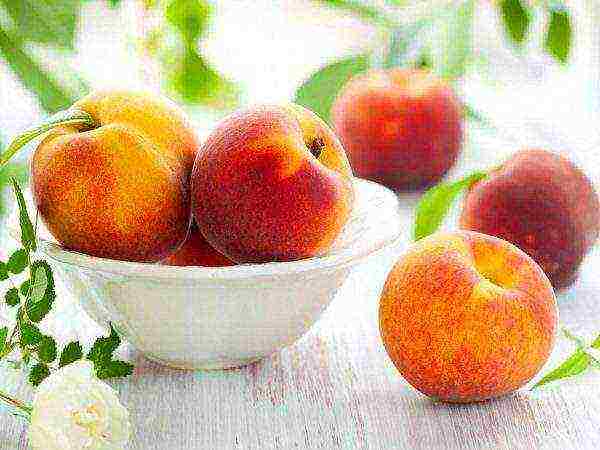
The significance of peach for the male body is isolated by its zinc content... The lack of this trace element reduces testosterone levels, which leads to impotence and disorders in the male prostate gland.
Benefits during pregnancy
Peaches are recommended for pregnant women. First of all, it is a balanced intake of important nutrients. Vitamin C is an active participant in the formation of bone tissue, skin, muscle fibers and blood vessels of the fetus. The substance increases the absorption of iron. The lack of this trace element causes the development of iron deficiency anemia., a known complication of pregnancy.
Folic acid is involved during the formation of the nervous system, division and growth of cells of all organs and structures of the fetus, regulates the processes of hematopoiesis. Vitamin B is especially important9 in the first trimester of pregnancy. Folic acid is involved in the transmission of genes from mother to child.
Phosphorus, magnesium and calcium useful for the musculoskeletal system, the load on which increases every month. In addition, minerals reduce the level of puffiness, contributing to the regulation of water and electrolyte balance.
In the diet of children
The product is perfect for the first fruit feeding of children. Pediatricians recommend giving peach to children older 10 months... In this case, it is recommended to remove the skin, which contains a large amount of β-Carotene, a potential allergen.

Peaches are useful for strengthening the immunity of children... A daily intake of vitamins and minerals will help resist viral and bacterial infections, as well as increase the body's endurance.
Magnesium regulates nervous stress by suppressing the formation of hormones that accelerate the transmission of impulses between cells. This property is especially valuable for manifestations of childhood hyperactivity., which provokes disturbances in the nervous system.
Contraindications for the human body
In addition to the benefits, a peach can also harm the body, therefore, it has a number of contraindications.
The product is not recommended for:
- diabetes mellitus;
- increased acidity of the gastrointestinal tract;
- the body's tendency to allergic reactions;
- chronic diarrhea.
What is the consumption rate of this fruit? The norm for a healthy person - 600 g per day.
The best recipes for health and beauty
The beneficial properties of peach are actively used in folk medicine and cosmetology.
Recipes:
- Arrhythmia, constipation, chronic gastritis... Freshly squeezed peach juice is used in the treatment. This is a daily intake of juice of 50 ml 30 minutes before meals 5 times a day. The duration of therapy is 7 days.
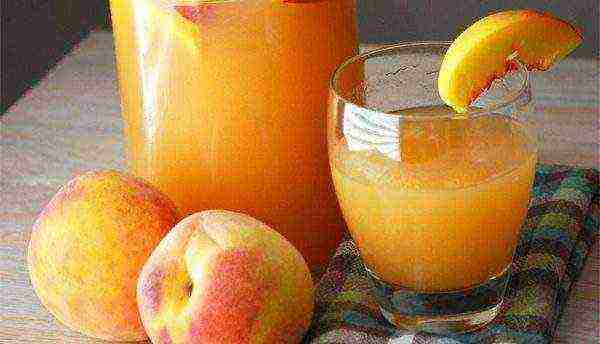
- Diathesis... Fried peach kernels are ground into powder and a small amount of water is added. The resulting gruel is smeared with the affected areas and kept for 15 minutes. Duration of treatment is 3-5 days.
- Gingivitis... Peach oil (2 tbsp. L) is mixed with 10% alcoholic extract of propolis (1 tbsp. L). The mixture is applied to the inflamed gums 3 times a day. Treatment continues until complete recovery.
- Furunculosis... Peach oil (1 tsp) is mixed with plantain leaves (1 tbsp) and kept for 3 hours. The resulting ointment is applied to gauze and applied to the inflamed areas for 30 minutes 4 times a day. Treatment is stopped after opening the boil.
- Hair treatment... The mask is recommended for dry hair with split ends. Peaches (2 pcs.) Are peeled, pitted and kneaded until smooth. Milk (3 tablespoons) and oregano essential oil (3 drops) are added to the gruel, mixed until smooth. The mask is distributed over the entire length of the hair and a plastic cap is put on. Withstand 20 minutes, wash off with warm water and wash with shampoo. The procedure is repeated once a week.
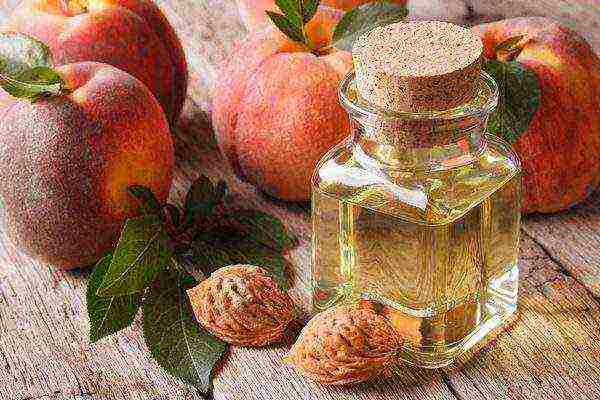
- Facial skin nutrition... Peach pulp gruel (1 pc.) Is mixed with chicken egg yolk (1 pc.), Cream (1 tbsp. L) and whipped. The mask is applied to cleansed face skin, kept for 15 minutes and washed off with warm water. The procedure is recommended to be carried out 2 times a week.
Choosing and storing peaches at home
Fresh peaches are not highly transportable and do not have a long shelf life... This problem can be partially solved by making the right choice of fruits and applying the recommended storage rules.
Fruit selection
An indicator of full ripeness of the fruit is a rich aroma. Ripe peaches, with light pressure, slightly crumple and quickly return to their original shape... The hardness of the fruit with a greenish top indicates that the fruit has been torn off to full technical maturity. In such fruits, the indicators of the chemical composition are much lower.
Fruits with a large number of dents and darkened skin are not suitable for storage. You should not buy peaches adjacent to rotten fruits, most likely they already contain fungal spores. To increase transport, nectarines are often treated with definitionil or paraffin.... Therefore, it is better to purchase fruits grown in geographically close regions.
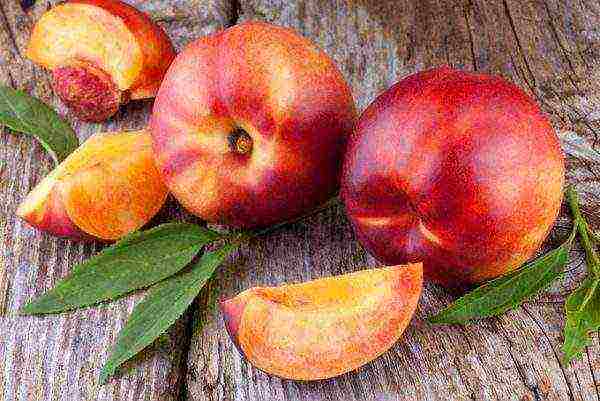
By the stone of the fruit, you can determine the presence of nitrates in the pulp... Shriveled and shriveled bones are a sign of the use of nitrates for quick ripening. Pronounced purple streaks in the fruit pulp indicate the presence of a disease - chlorosis, the toxins of which can cause human poisoning.
Storing fresh peaches
After harvesting or purchasing peaches from the market, it is important to take care of proper storage. At home, fruits can be stored for no more than 5 days, and in the refrigerator for 14 days.
Storage methods:
- If the need for storing the fruit harvest is annual, it is advisable to purchase special trays with cells... The peaches, laid out in separate cells, are well stored for 2 weeks at a temperature of 0 ° C - + 1 ° C and an average air humidity of 85%. You can achieve the same result by wrapping each fruit in tissue paper.
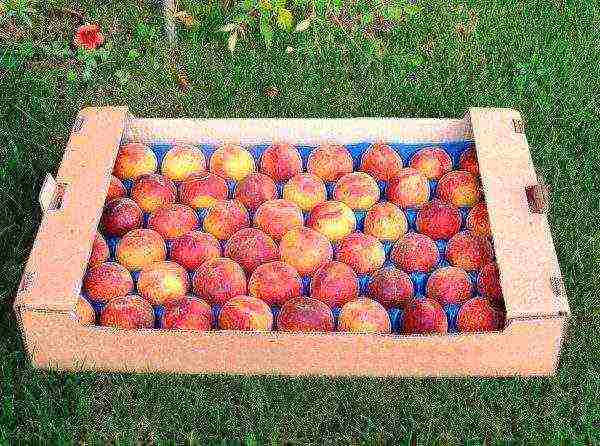
- Some gardeners store peaches in the sand.... For this, strong fruits are selected without dents of late ripening. Fruits are laid out in a dark, well-ventilated area to evaporate excess moisture for 3-4 days. After that, each fruit is wrapped in paper and laid out in low boxes, filling the space between them with river sand. In each box, no more than 4 layers are placed so that the fruits are not crushed under the weight. Store fruits under recommended conditions. This method increases the shelf life up to 4 months.
- Significantly increases the shelf life of salicylic acid... To do this, make an alcoholic solution of salicylic acid (1 g / 100 ml) and treat each fruit with it.
- If you bought unripe peaches, do not despair! It is easy and quick to make them ripen. Place unripe peaches in a bag. For better ripening, add a banana or apple to the bag. These fruits release a lot of ethylene and contribute to the faster ripening of peaches.
Storing canned peaches
Preservation allows you to preserve 85% of the beneficial properties of peaches and provide the diet with a delicious and aromatic dessert all year round. For this, small and dense fruits are selected without dents and wormholes.

Prepare the container in advance. Suitable for canned peaches 2-3 liter banks... The containers are washed and sterilized. Peaches are washed in 1% baking soda solution and placed in jars.
In an enamel pot, boil water, the volume of which is designed for the number of cans. Sugar is added to boiling water at the rate 500 g on the 3 l water... After the sugar is completely dissolved, the syrup is poured into fruit jars.
Jars covered with lids are placed in a saucepan with a towel laid on the bottom. 3 liter cans are sterilized 45 minutes, 2 liter - 35 minutes... After that, the cans are rolled up with lids. To check the sealing, turn it upside down. After that, the containers are returned to their original position and left to cool at room temperature.
Hermetically sealed and properly prepared preservation can be stored in room conditions. But the optimal conditions for her are a dark, well-ventilated room, lack of dampness and air temperature from 0 ° C before + 15 ° C... In such conditions, canned peaches last up to 2 years.
Peach is a versatile product that will delight you with an extraordinary taste and aroma, will help get rid of many disorders in the body. Fresh fruits can be used to prepare delicious fruit salads, add to dairy products and cereals.... Canned peaches are ideal as a dessert and sweet sauces.
